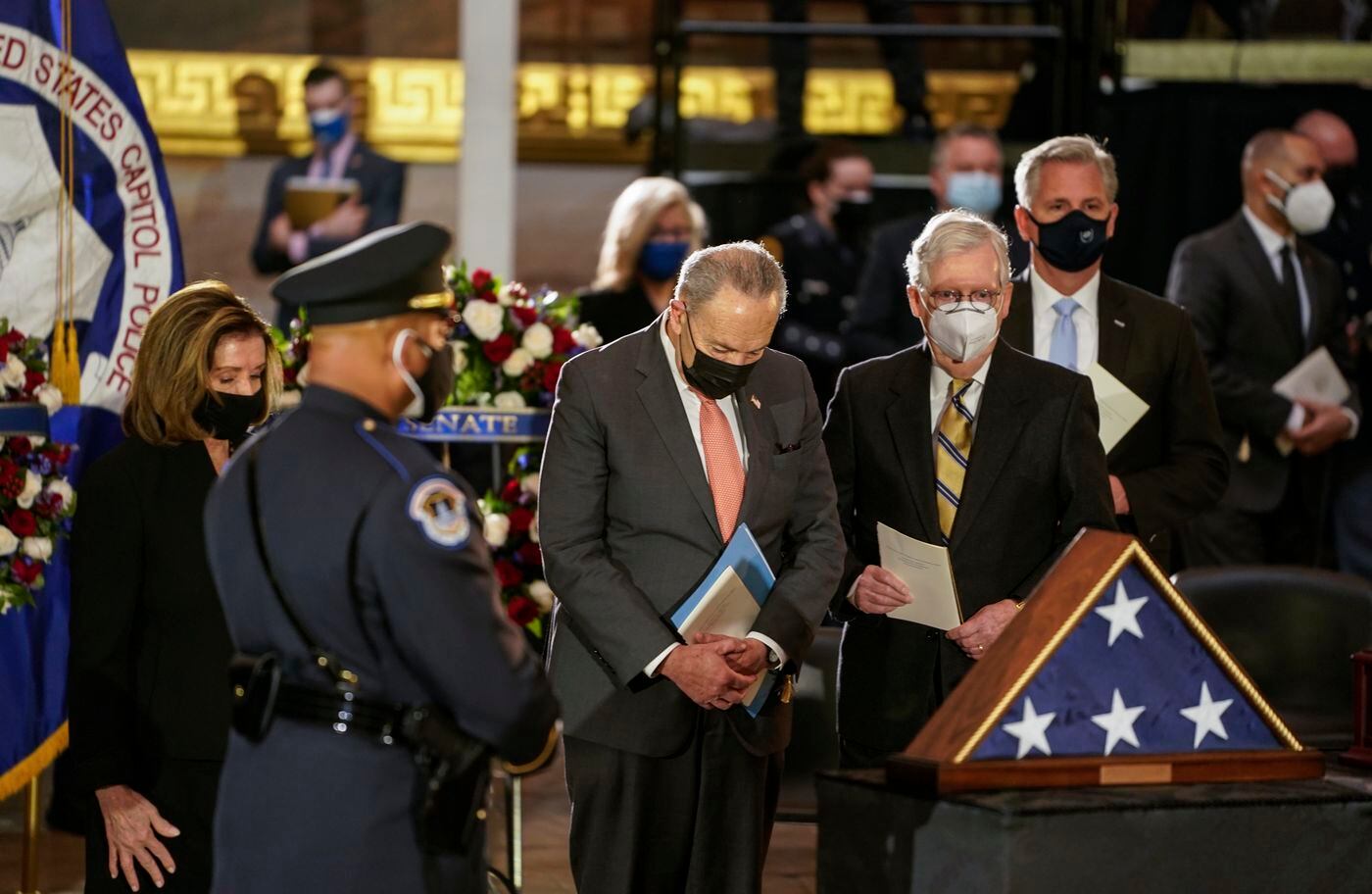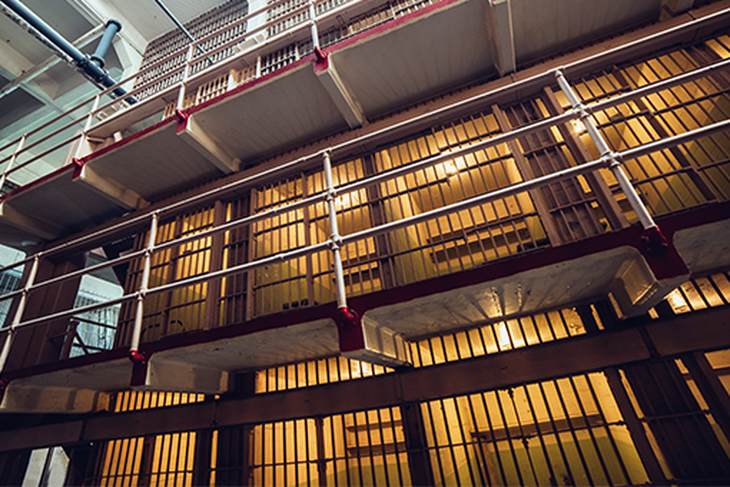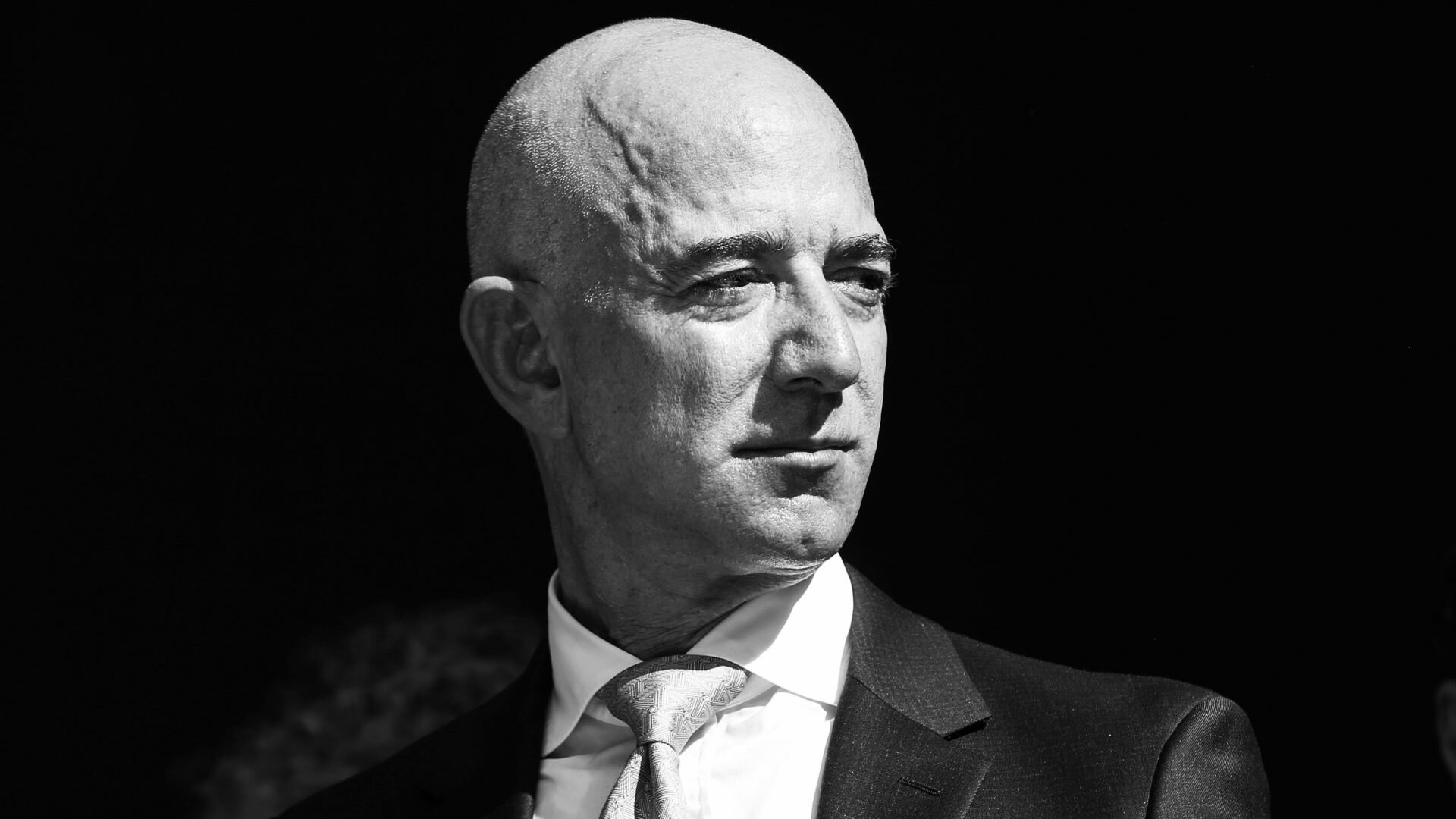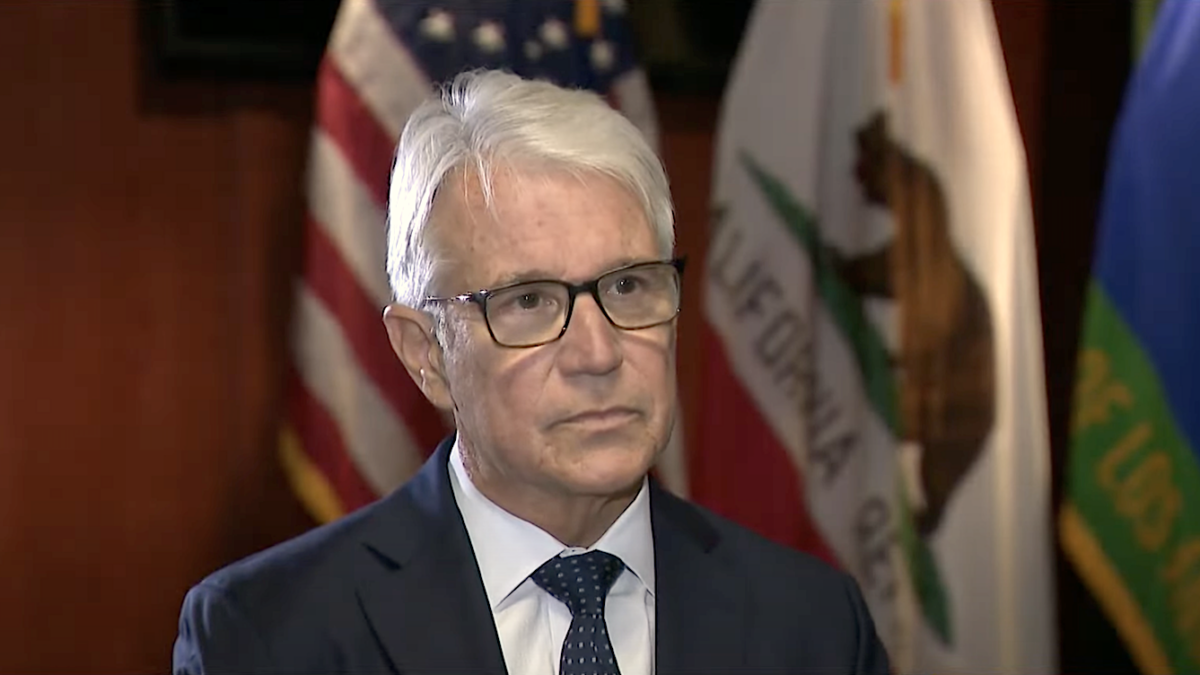
The Capitol Police officer did not die after being attacked by Trump supporters with a fire extinguisher on January 6. Yet news organizations and lawmakers refuse to correct the Big Lie.
Law enforcement officials, according to several news reports, now are searching for someone who allegedly released bear spray into a crowd of police officers January 6 outside the Capitol building. The suspect might have sprayed the chemical at Brian Sicknick, the Capitol Police officer who died January 7 reportedly from injuries sustained in the chaos.
“In a significant breakthrough in the case, investigators have now pinpointed a person seen on video of the riot who attacked several officers with bear spray, including Officer Sicknick,” the New York Times reported Friday night.
With that one sentence, the Times buried for good its own original account of what happened to Sicknick—the now-debunked claim Trump “loyalists” beat him to death with a fire extinguisher. The Times seeded the fabricated story in a January 8 article; the paper “updated” the article—in reality, a retraction—on February 12 after pressure from a few outlets, including American Greatness.
The “bear spray” assault is just the latest change in the slowly unraveling mystery surrounding Sicknick’s untimely death. (He was 42.) His grieving mother told the Daily Maillast week she believes her son died of a stroke and isn’t sure if any sort of repellent spray caused it. The D.C. Medical Examiner’s office, in what can only be interpreted as a cover-up, refuses to release any autopsy or toxicology report, even though Sicknick was cremated weeks ago.
The public, and his family, may never know exactly how he died.
But one thing is certain: Brian Sicknick did not die after being attacked by Trump supporters with a fire extinguisher on January 6. The story is a lie. It is in fact, unlike claims of election fraud, a Big Lie. And everyone from Joe Biden to top news organizations down to random Twitter accounts who repeated the lie knew it was a lie because no evidence ever existed to prove the claim was true. It didn’t matter to the propagandists of the lie that it was a lie; the fabrication served its destructive political purposes.
Yet major news organizations and lawmakers still refuse to correct the Big Lie. The death-by-fire-extinguisher fable is a permanent feature in the egregiously overblown drama of the January 6 “insurrection.” The uncorrected version will be part of the historical record.
A January 8 article in the Wall Street Journal still states, “Brian D. Sicknick . . . was struck in the head with a fire extinguisher during Wednesday’s unrest, according to a law-enforcement official.”
The Washington Post, the “Democracy Dies in Darkness” vanguards of the truth, has not corrected an editorial paying tribute to the fallen officer. “Officer Sicknick was pummeled by a rioter wielding a fire extinguisher, according to witnesses,” the editorial board wrote January 11.
“Sicknick was placed on life support in hospital after being struck in the head with a fire extinguisher wielded by a protester at the Capitol on Wednesday, according to a tweet by reporter Alexandra Limon,” Newsweek reported January 8. Neither the article nor the linked tweet has been corrected as of Saturday.
The Associated Press on January 2 reported: “During the Capitol siege, as rioters seething over President Donald Trump’s election loss stormed the building, Sicknick was hit in the head with a fire extinguisher. He died the next day.” AP has yet to publish a correction or an “update.”
An article in the New York Daily News still includes a passage in a January 29 story claiming “the police officer who was pepper-sprayed then fatally bludgeoned with a fire extinguisher when hundreds of Donald Trump supporters stormed Congress on Jan. 6 will lie in honor at the U.S. Capitol rotunda.”
You get the idea. Thousands of articles, broadcast segments, and cable news diatribes perpetuate the lie about Sicknick’s death spawning millions more iterations with no updated facts. Scores of verified Twitter users still have posts online promoting the lie to their followers.
“Officer Sicknick has been muzzled for life because the mob you incited murdered him with a fire extinguisher. You are not getting out of this with a political career you pathetic seditionist,” Fred Wellman, executive director of the Lincoln Project, tweeted at Senator Josh Hawley (R-Mo.) on January 24.
“Love how all these stories make clear: This is not the murderer who murdered Brian Sicknick. It’s another (wannabe) murderer,” Salon’s Joan Walsh tweeted January 14 about the arrest of another man charged with throwing a fire extinguisher at police.
“The extinguisher that Mr. Sanford allegedly threw is separate from the one that killed Officer Brian Sicknick, who was also struck in the head with a fire extinguisher during the unrest and died from his wounds,” Harvard epidemiologist and COVID-19 panic pusher Eric Feigel-Ding tweeted to his nearly 500,000 followers on January 14.
Will Twitter CEO Jack Dorsey, who launched an aggressive campaign to censor and deplatform users spreading “disinformation” about the 2020 election, take similar steps to ban any content related to the fire extinguisher lie? Let’s not hold our breath.
Of course, the biggest platform to spread the Big Lie about Brian Sicknick’s death was the House Democrats’ impeachment trial. The claim is forever part of the government charging documents attempting to bolster the case against President Donald Trump. Will Republicans now demand the lie be stricken from the official record? Let’s not hold our breath about that, either.
The sad reality is even if every news outlet, journalist, editor, pundit, lawmakers, and social media user admitted the story was false, millions of Americans will refuse to believe the truth. Blinded by hatred for Trump and his supporters, willfully brainwashed by their favorite cable news host or Washington Post columnist, these folks once again will reject facts just as they’ve done over and over in the Trump era.
And the news media know they can get away with it. No one gets fired, no one apologizes, no one faces public humiliation. There is no reckoning, which is why they will do it again. If anyone thinks exploiting the untimely death of a police officer to score political points is the low point for the media, Democrats, and NeverTrump Republicans, stand by. They seem to find new lows by the day.
Where Are All the Retractions of the Brian Sicknick Story? (amgreatness.com)








